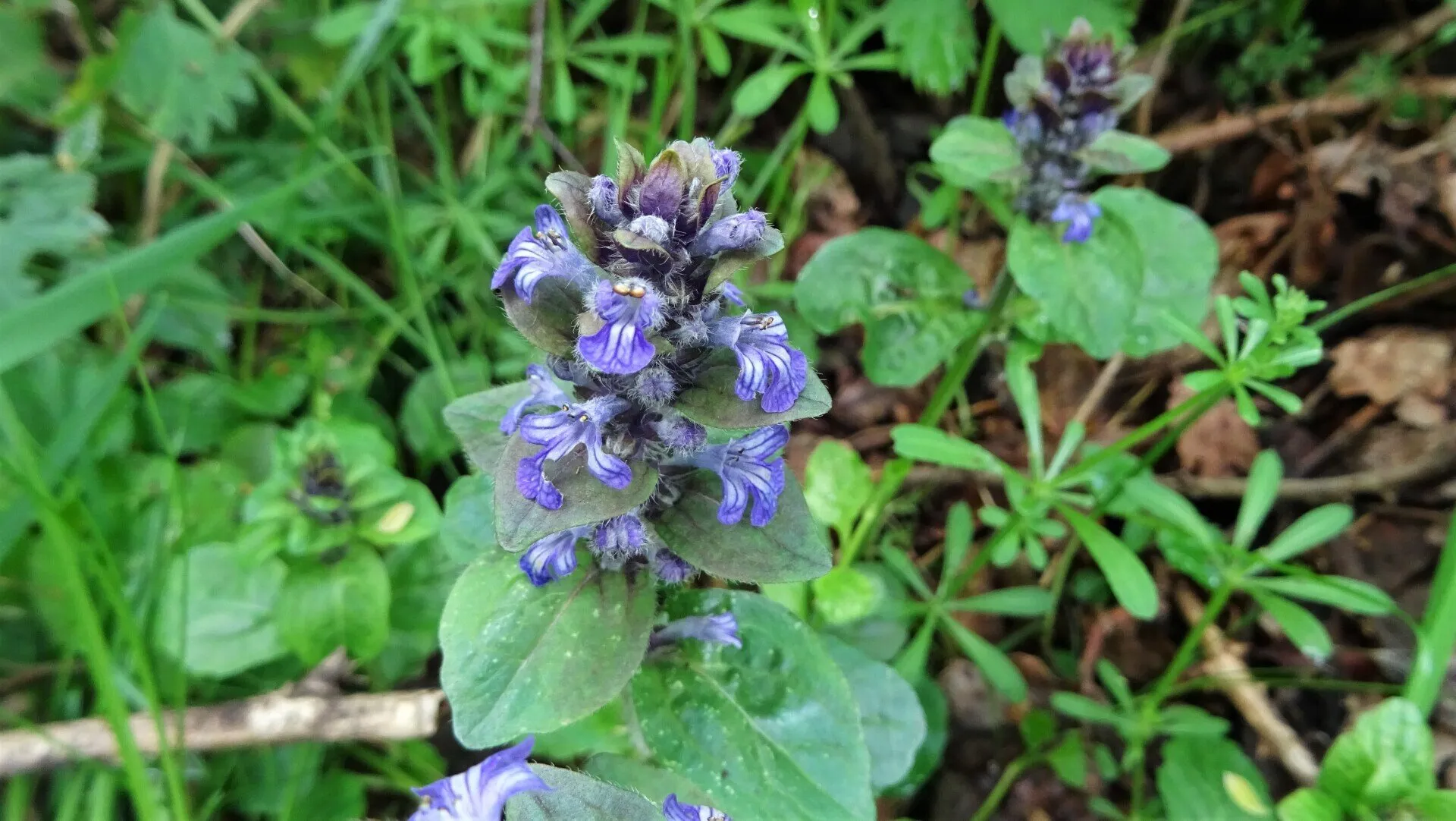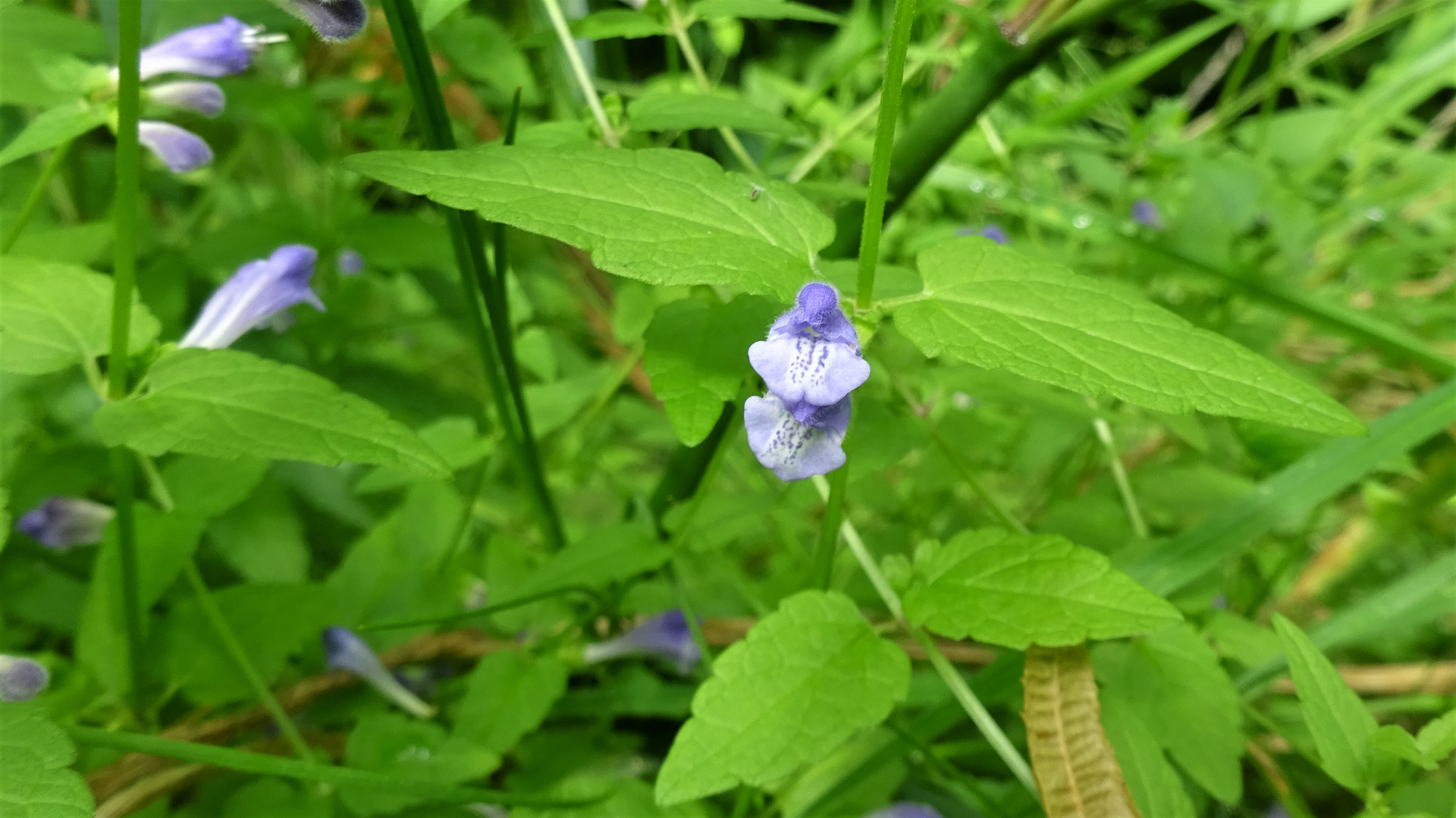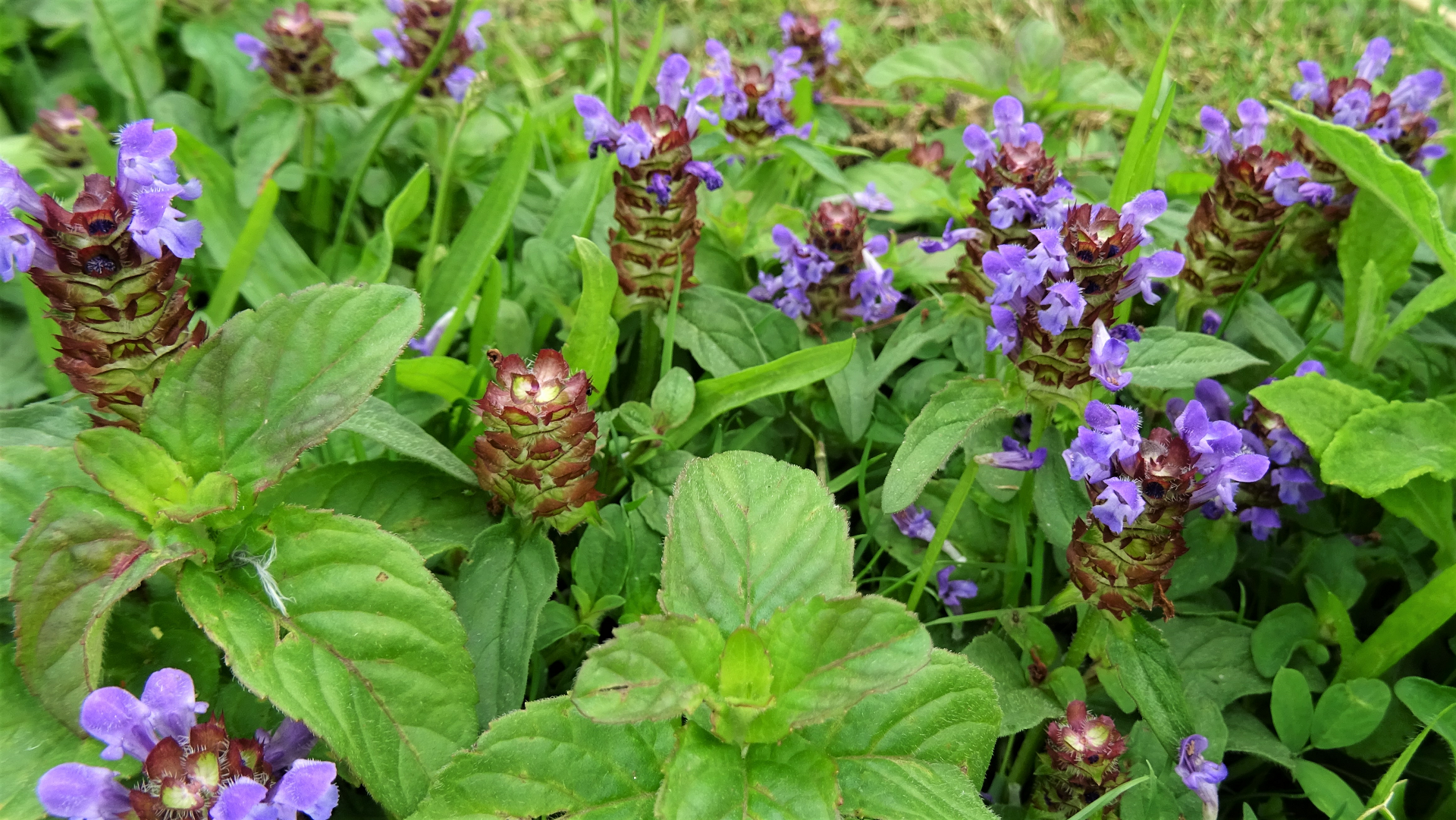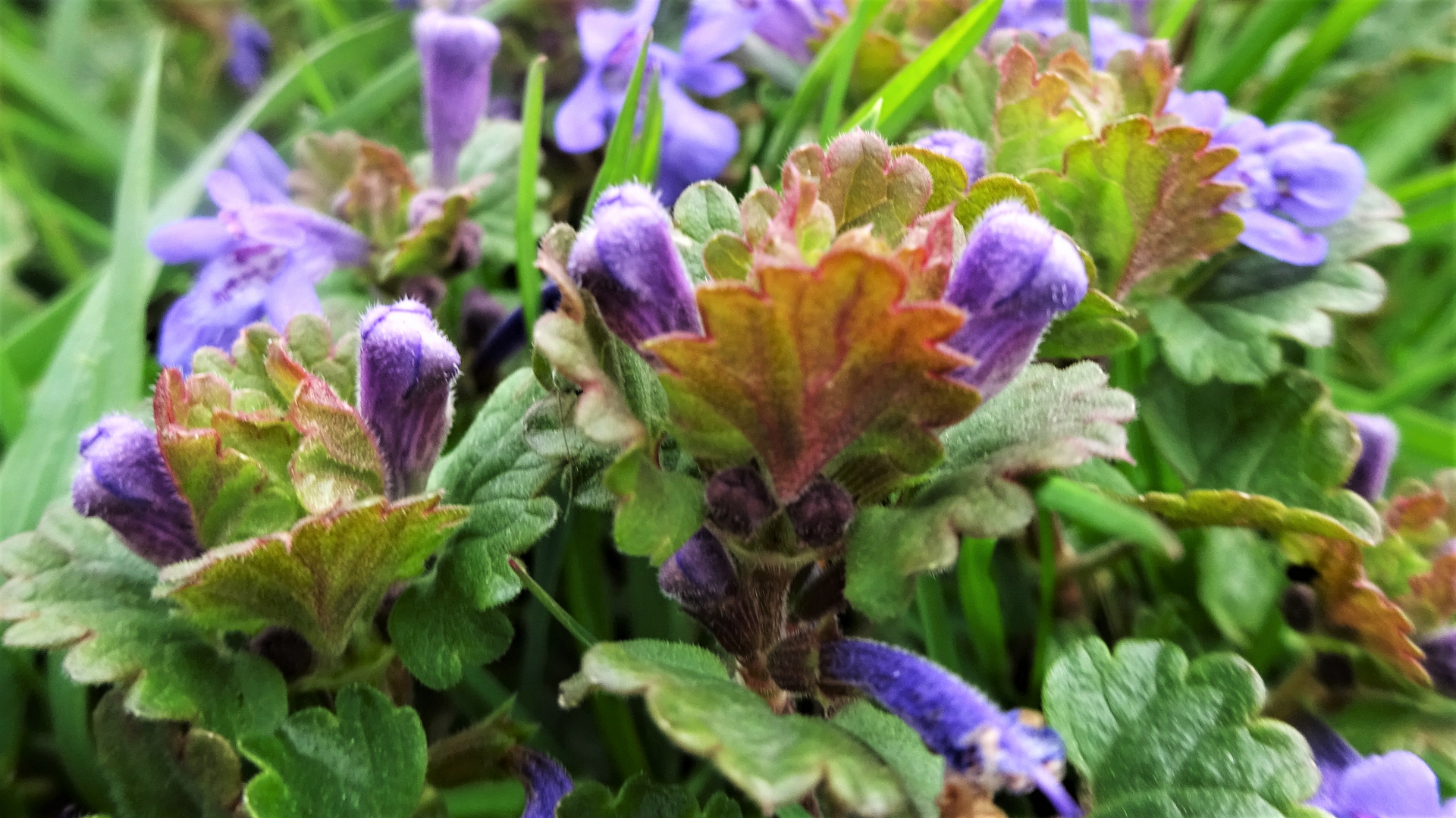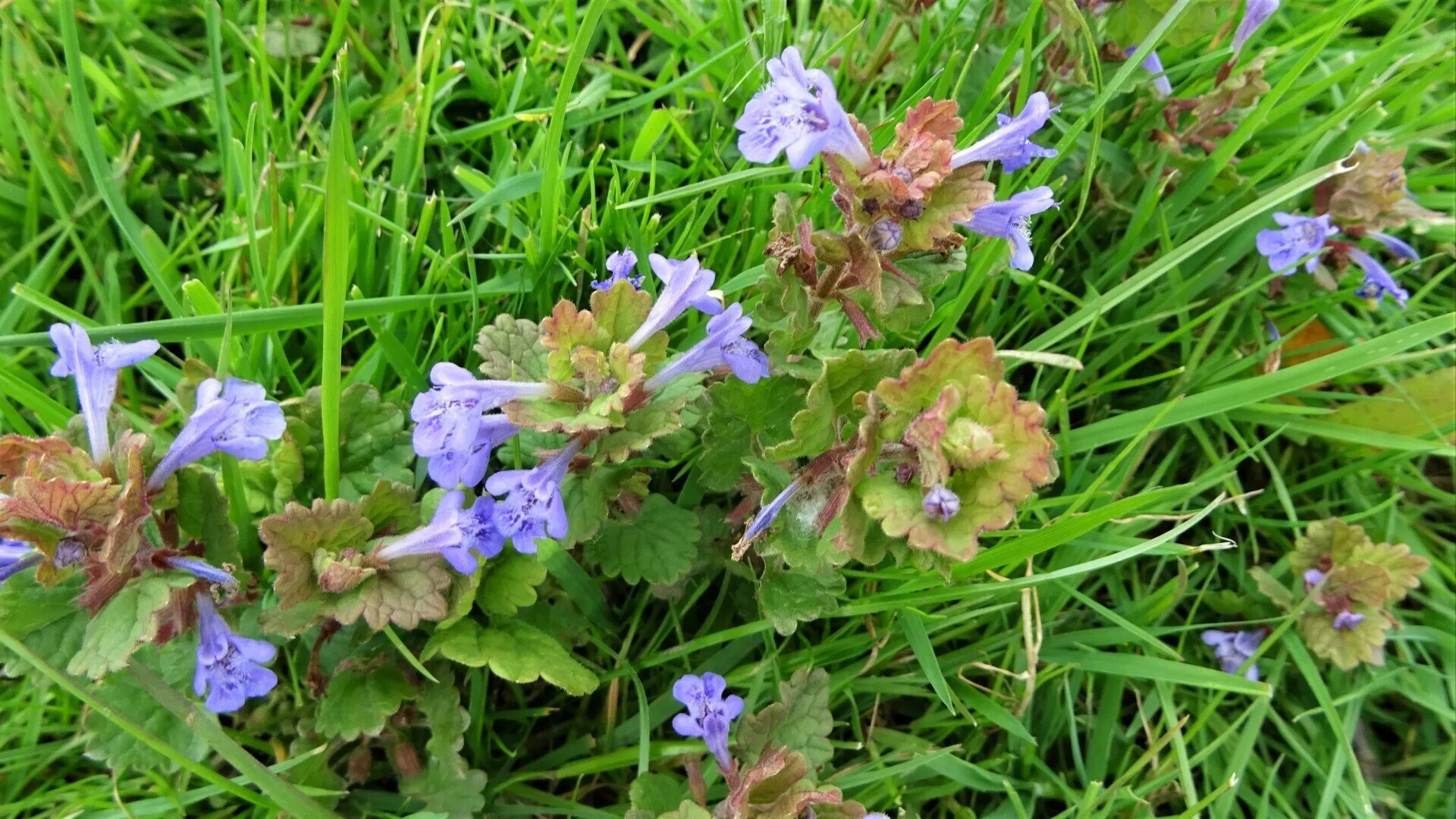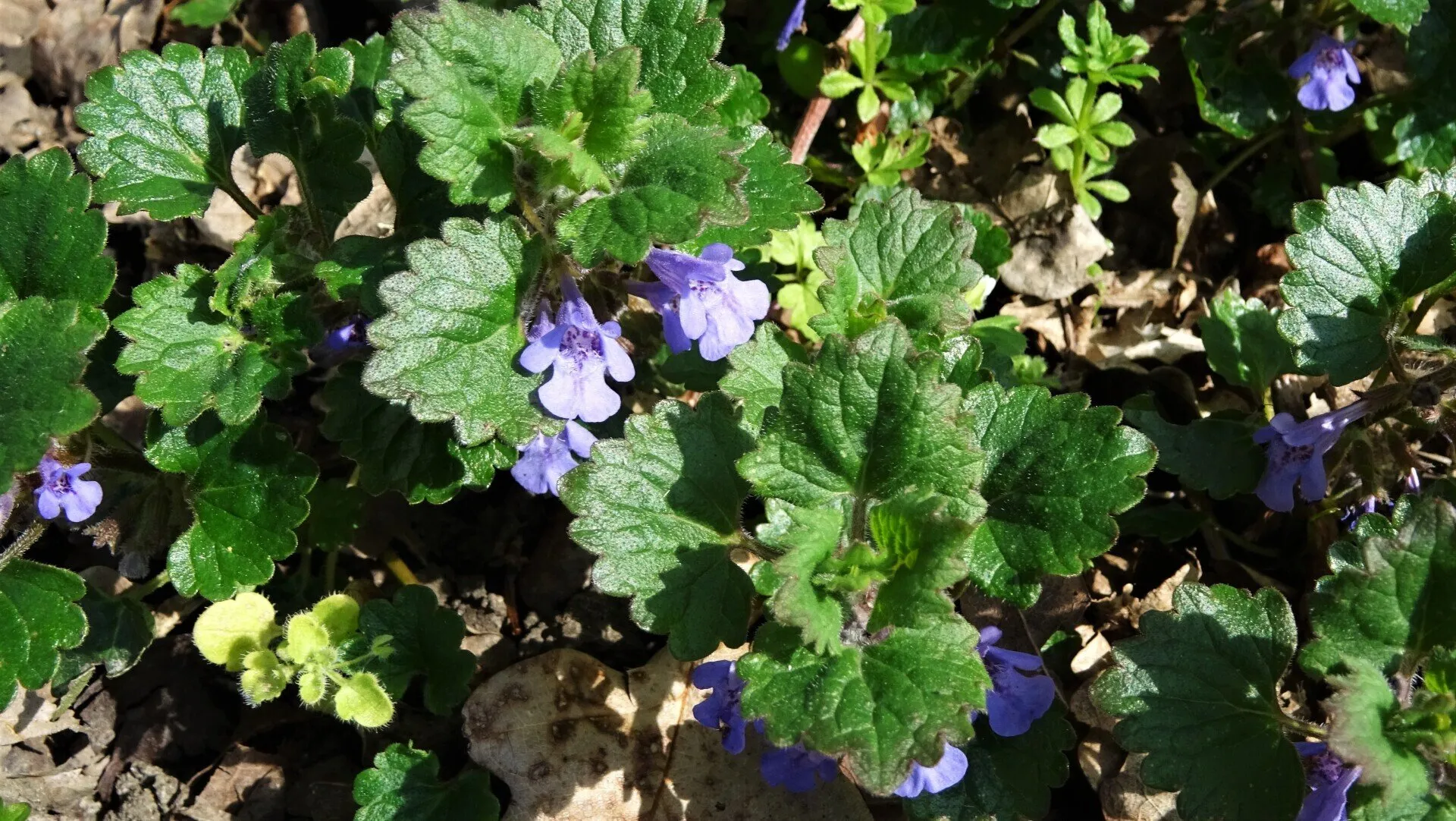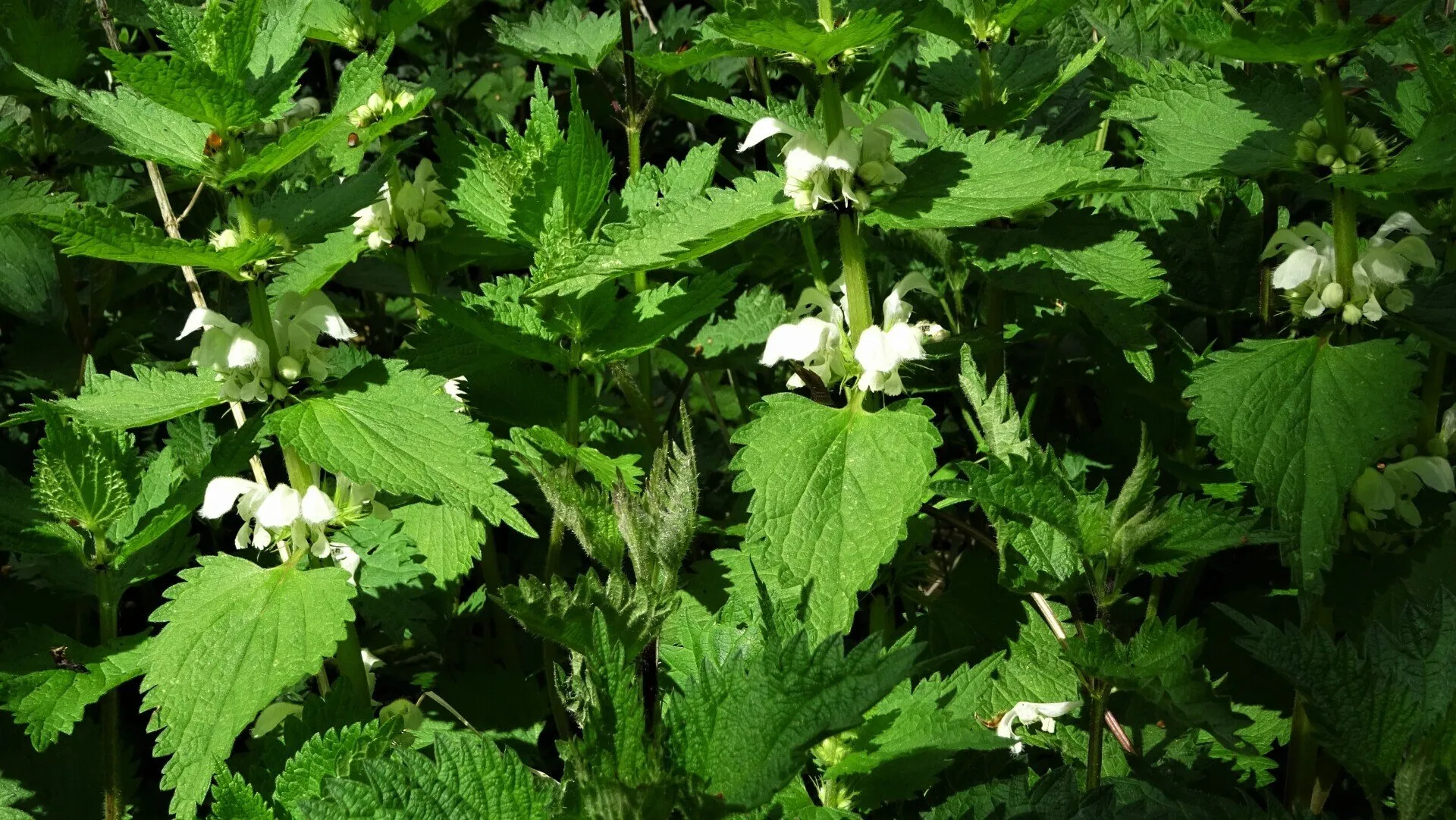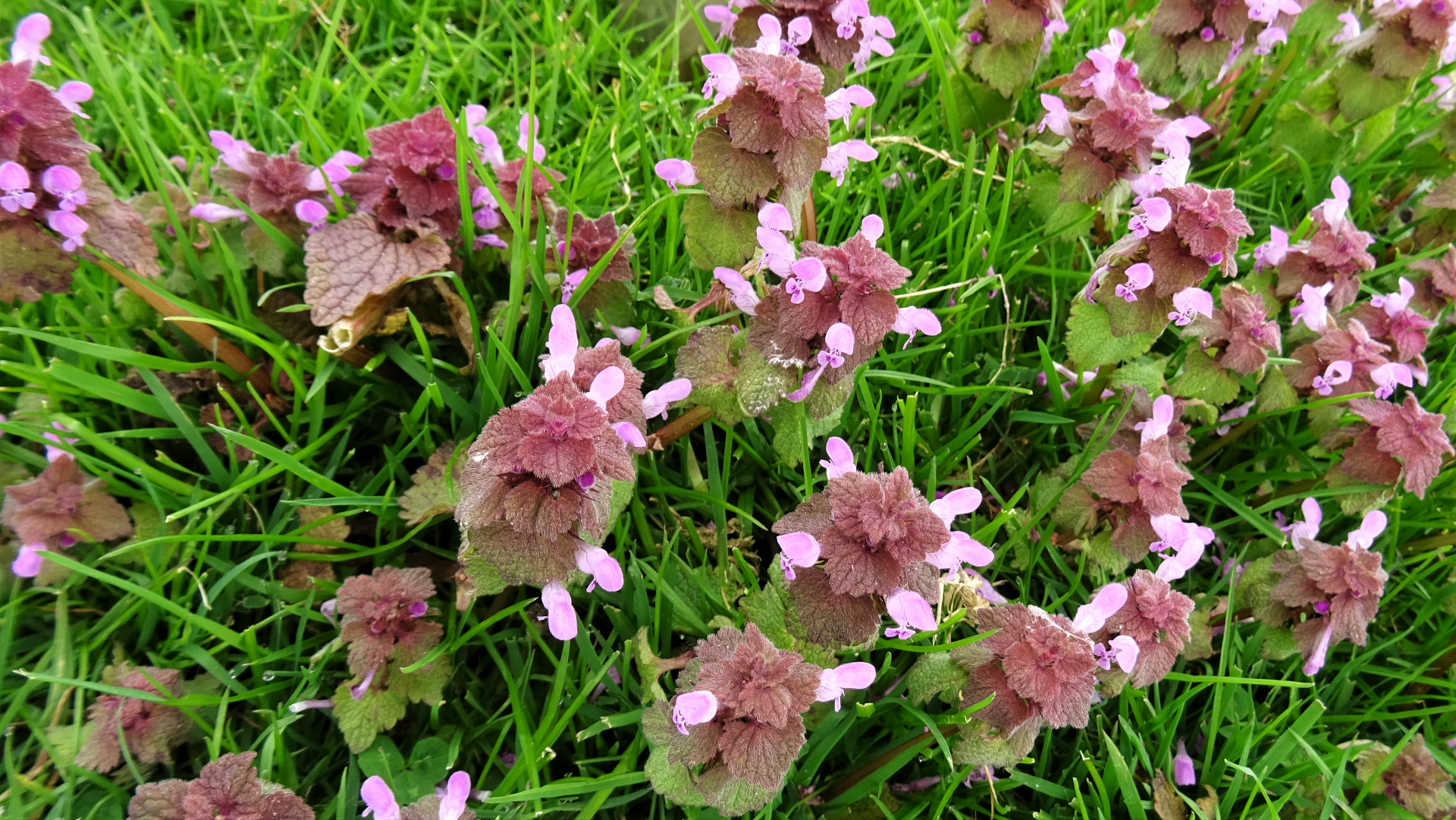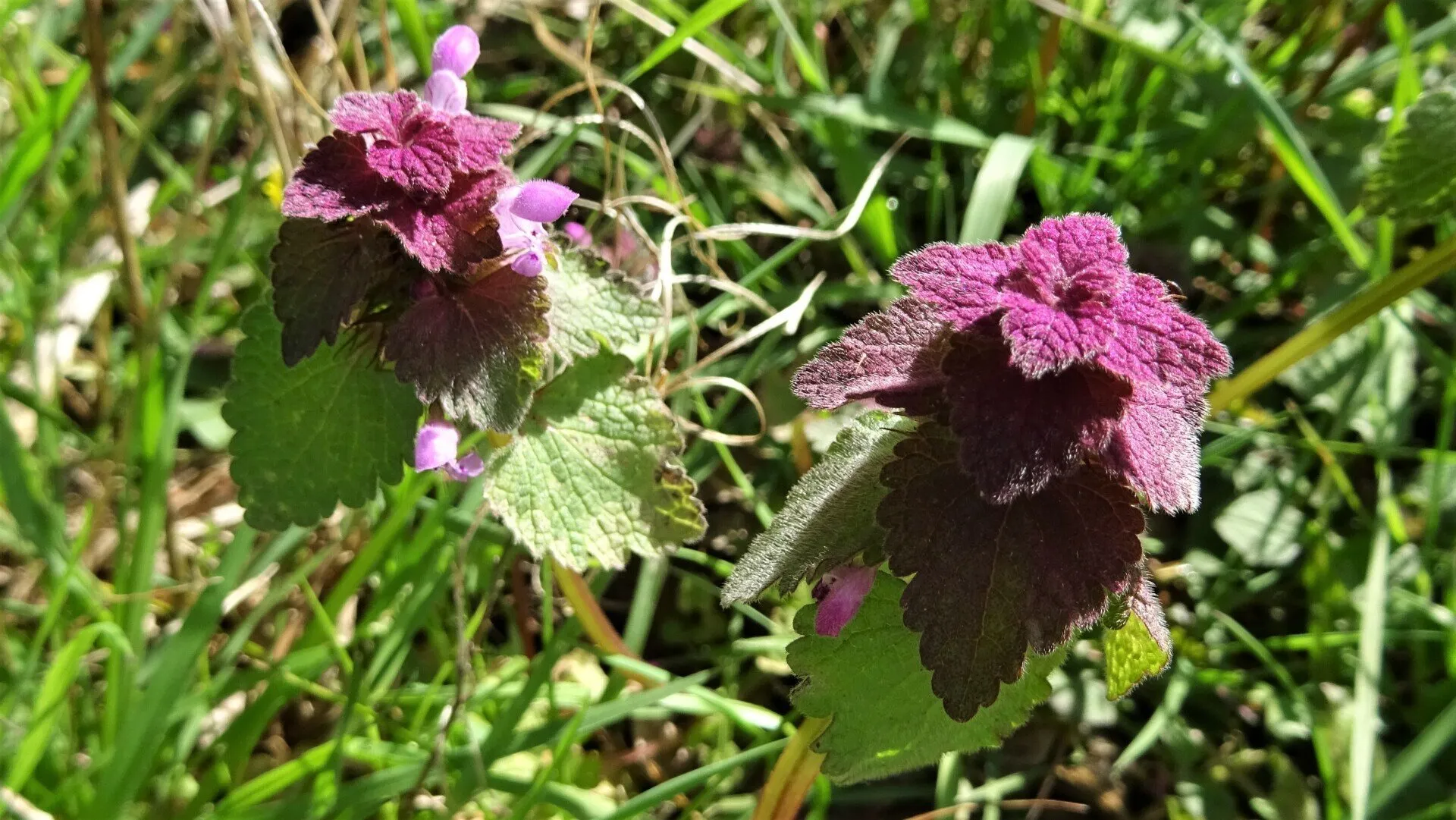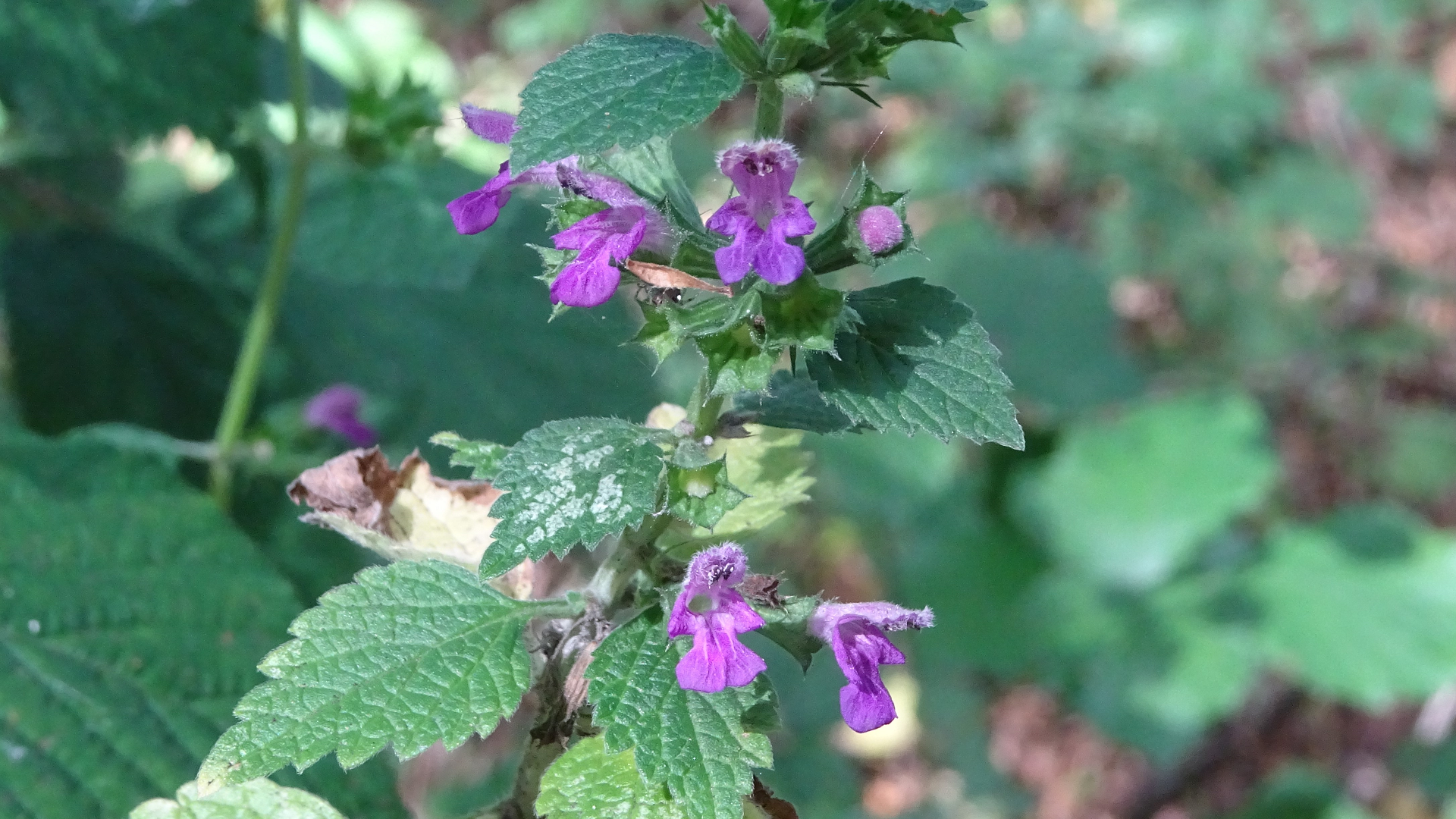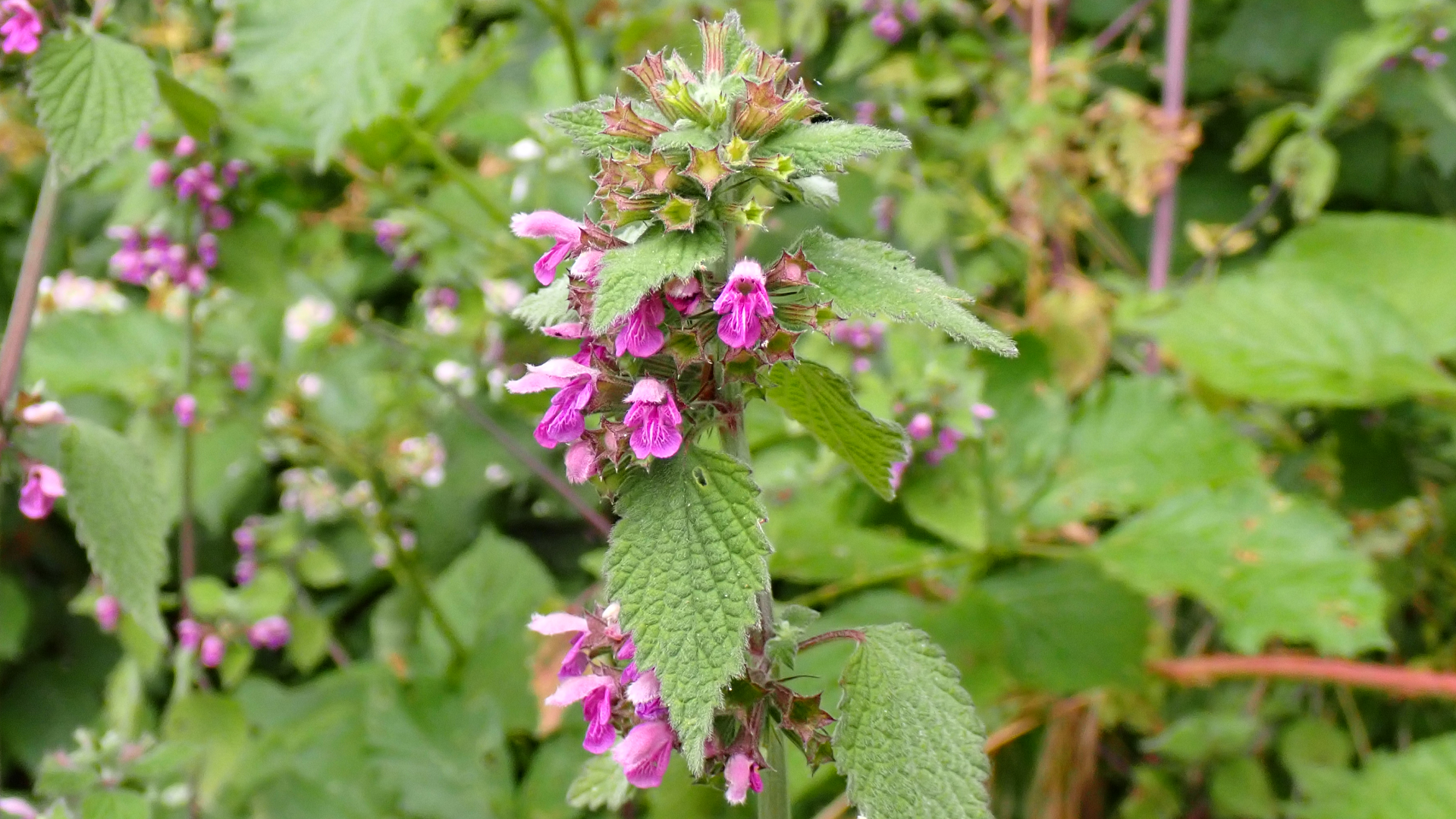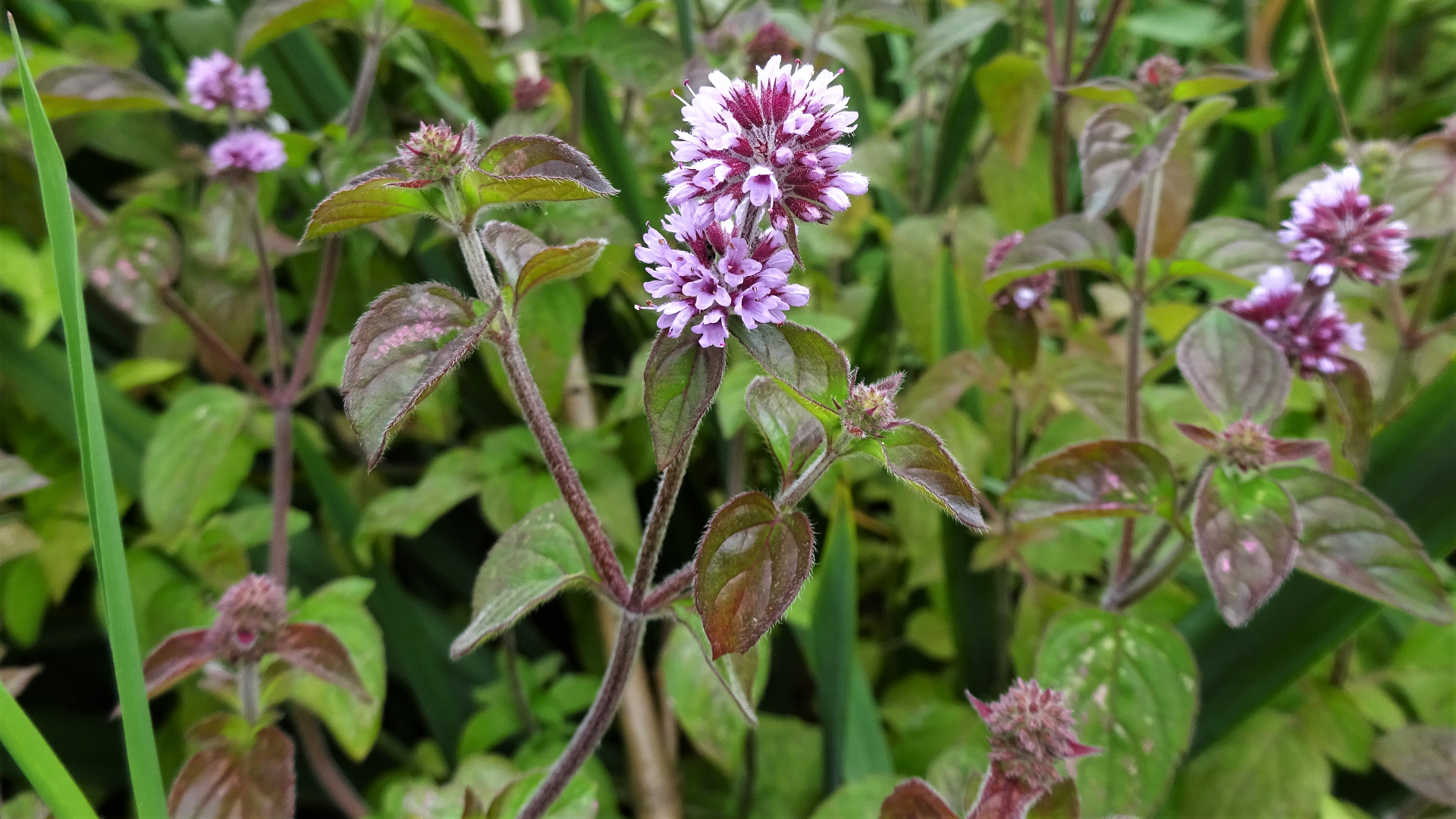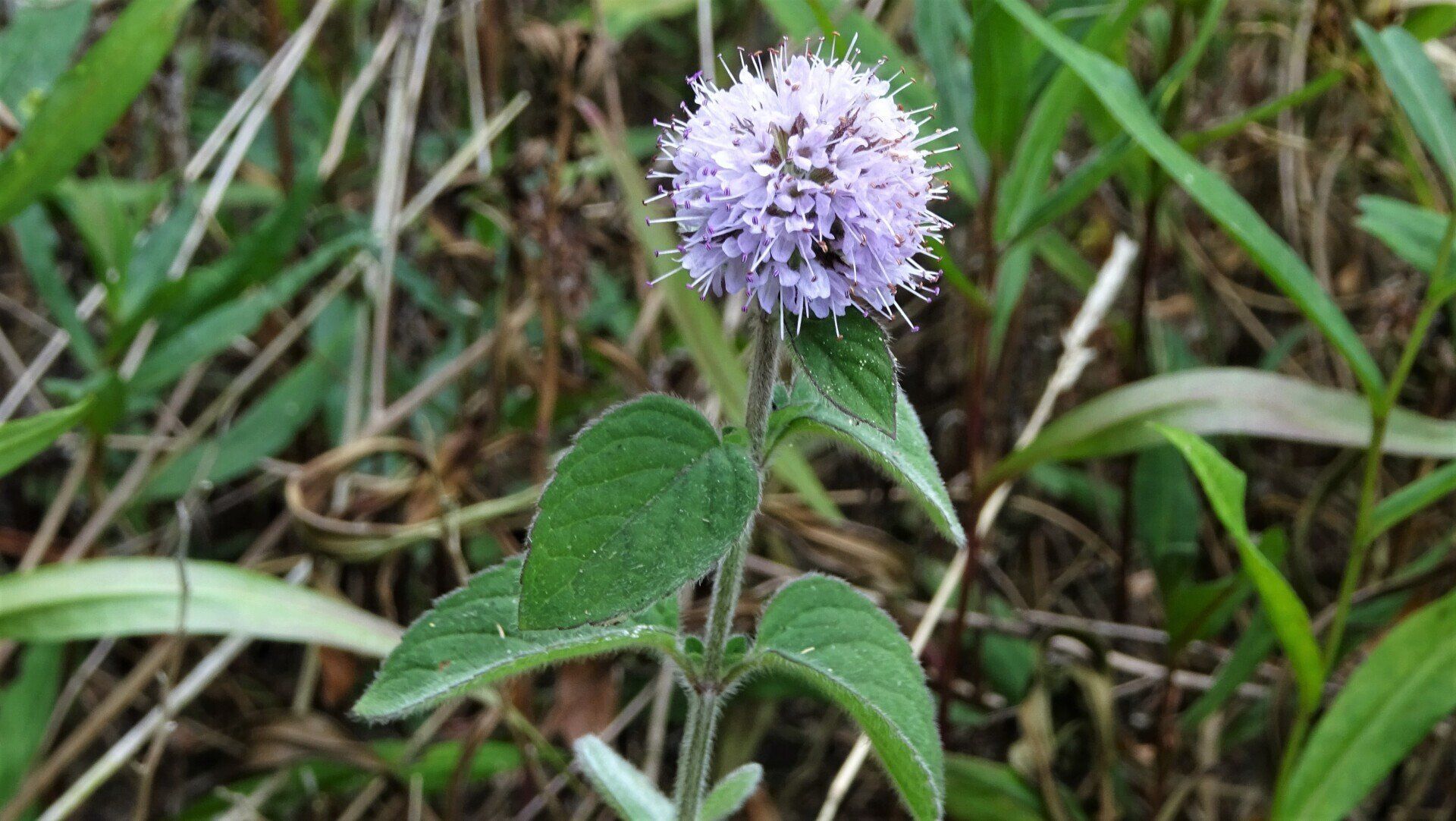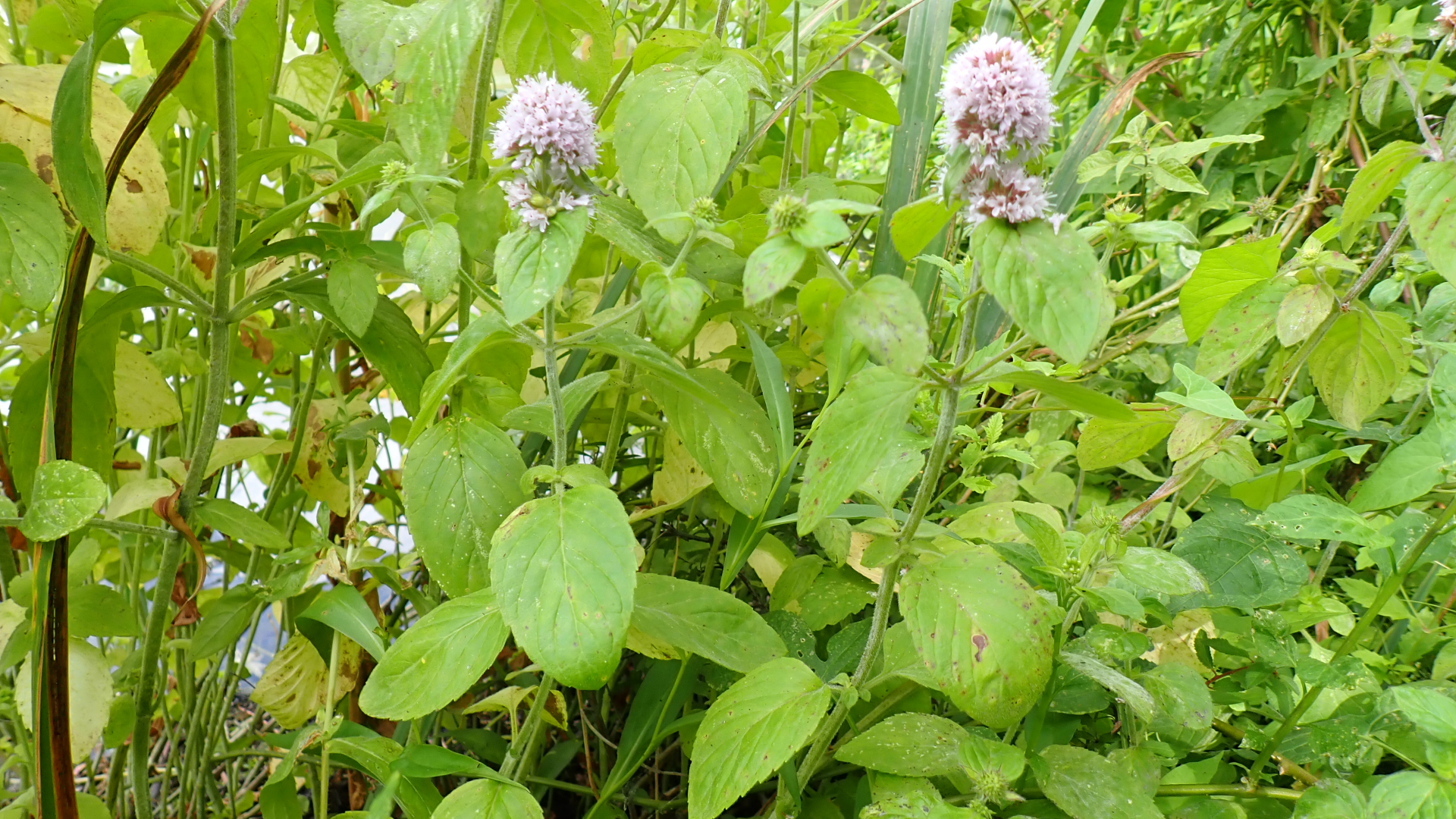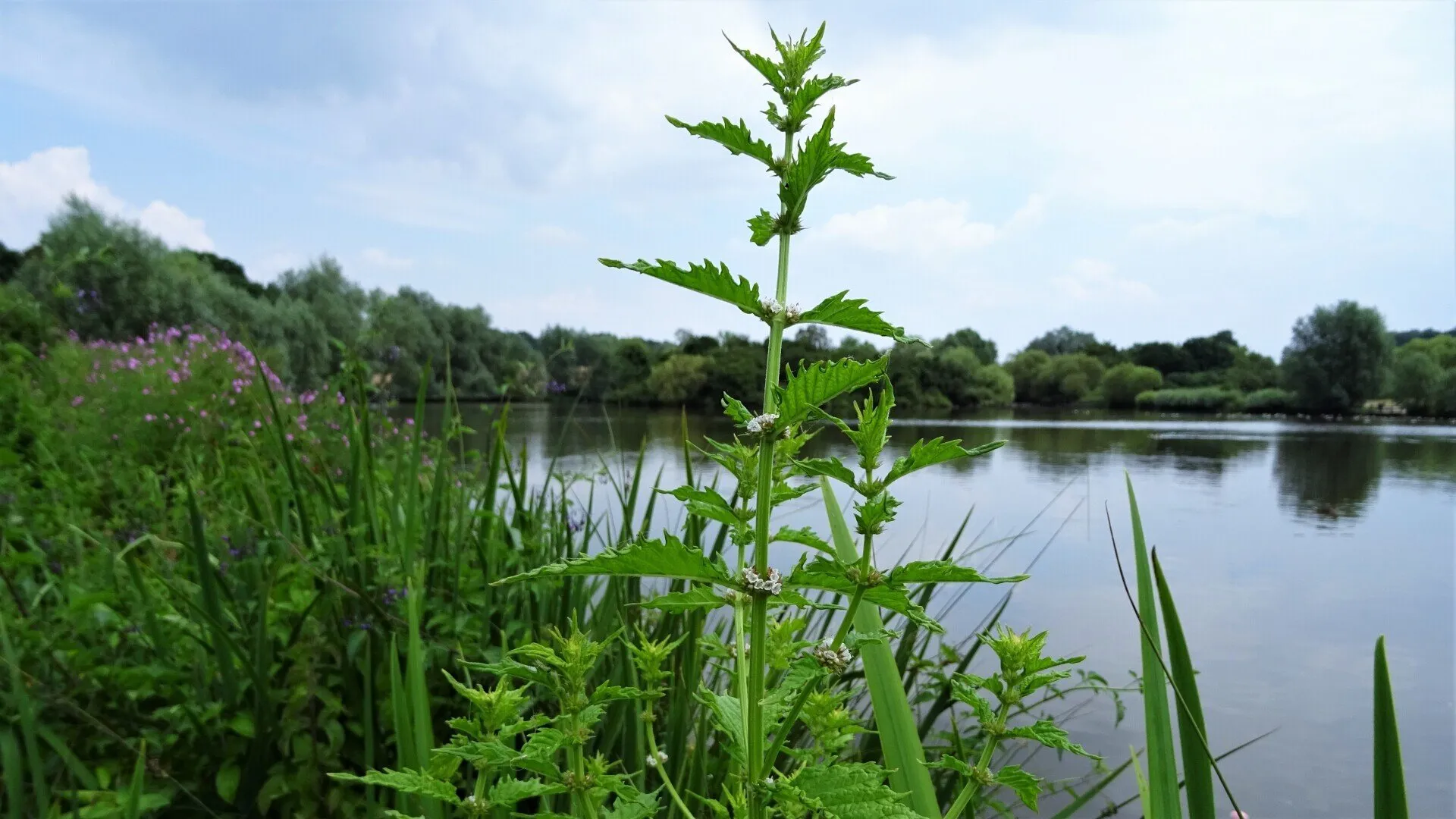WILDFLOWERS
MINT FAMILY
Bugle Ajuga reptans has a preference for damp woods and can be found near Roe's Well during spring. Long creeping runners produce, short, erect, leafy flowering stems. It has square stems and opposite leaves.
Skullcap Scutellaria galericulata is a perennial that flowers in damp habitats from June to September. It has bluish-violet flowers, a square stem and opposite pairs of round-toothed oval leaves.
Selfheal Prunella vulgaris is a low-growing perennial with oval leaves and bluish-violet flowers.
Ground Ivy Glechoma hederacea is an evergreen creeping plant found in woodland and on damp ground. It spreads by using overground runners that sometimes take root. Its violet flowers appear from March until June.
White Dead-nettle Lamium album has dense clusters of white flowers in whorls around a square stem. Usually found on disturbed ground and waste spaces. Does not sting.
Red Dead-nettle
Lamium purpureum has dense clusters of reddish-pink flowers in whorls around its square stem. Usually found on disturbed ground and waste spaces. Does not sting.
Yellow Archangel Lamiastrum galeobdolon subsp. Argentatum is a garden escape now naturalised in the forest. A deadnettle.
Black Horehound Ballota nigra has a strong aroma so is rejected by cattle making it useless for grazing. The Greek ballo means to reject, hence ballota in the scientific name. The leaves appear blackish when dried and this likely explains nigra which means 'black'.
Water Mint Mentha aquatica flowers from July to October in damp locations. It spreads vigorously using creeping runners.
Gypsywort Lycopus europaeus inhabits wet locations. It is slightly hairy plant and not aromatic. Its small flowers (4mm) grow in dense whorls at the base of the uppermost leaves.
© hainaultforest.net. All rights reserved.


